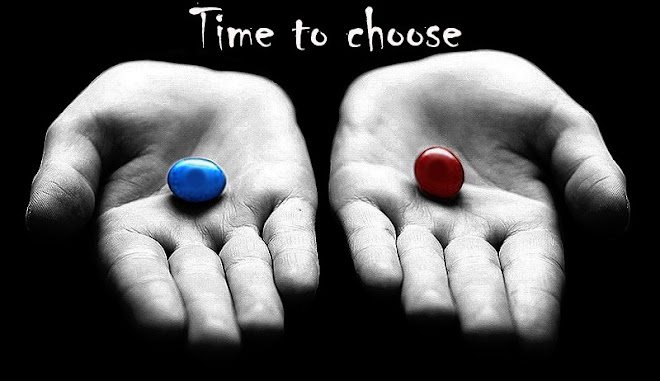Revolution is in the air and dictators and leaders throughout the Middle East had better be on guard because the people have had enough. They are tired of being repressed. They are tired of the way their country's wealth is siphoned off so that a few at the top are insanely rich and the masses of citizenry suffer in ghettos. They demand freedom of information as it is harder to restrain free speech with the power of the internet and the rise of the social network. The power to keep the people ignorant is diminishing; yet of course don't think that will stop some leaders from trying.
Today when common people are on the streets wanting dictators like Hosni Mubarak to go, these regimes are shaking in their boots. Now Israeli authorities want to prevent democracy in Egypt as democracy, according to them, would mean Brotherhood coming to power. Earlier in Palestine when Hamas came to power through democratic elections, America and Israel refused to recognize elected Hamas Government. So much for democracy Israel and US talk about.(www.twocircles.net)
And whenever there are good prospects for democracy in any Islamic country the US rushes in to support dictatorships from Indonesia to the Arab world and then blames Islam for being anti-democratic. Hosni Mubarak’s dictatorship was supported by USA and Israel in their own interest and what is worse Israel’s interest is US interest. Today when Obama realized that Hosni Mubarak has totally lost support he is advising him to go to keep its credibility with the people of Egypt. But it will also see that someone is installed who acts in US-Israel interests.
America's Most Embarrassing Allies
SAUDI ARABIA - Leader: King Abdullah
The king has ruled Saudi Arabia since 2005. As ruler of a country with no elections, parliament, or political parties, Abdullah and his family exercise unchecked power within the kingdom, and -- thanks to their control of one-fifth of the world's oil reserves and Islam's two holiest sites -- quite a bit of influence beyond their borders as well. Abdullah surprised many by undertaking some minor reforms of the country's clerical establishment in 2009, though this may have had more to do with a desire to consolidate his power than any enlightened pluralistic impulses.
YEMEN - Leader: Ali Abdullah Saleh
Saleh first took power in Northern Yemen in a military coup in 1978 and has ruled the entire country since unification in 1991. Opposition parties are marginalized, parliamentary elections have been indefinitely postponed, and civilians are frequently caught up in military strikes in the country's lawless south.
JORDAN - Leader: King Abdullah II
When the Western-educated Abdullah took the throne in 1999, hopes were high that political reforms would follow. The government lifted 20 years of martial law in 1989, restoring the country's parliament. But open democracy did not follow: The country's election system remains deeply flawed, gerrymandered to support tribal candidates and government loyalists.
ETHIOPIA - Leader: Meles Zenawi
The 2010 election, in which Prime Minister Meles Zenawi's party won a remarkable 99.6 percent of the vote, was the culmination of what Human Rights Watch called "the government's five-year strategy of systematically closing down space for political dissent and independent criticism." This included attacks and arrests of prominent opposition figures, the shutting down of newspapers and assaults on journalists critical of the government, and doling out international food aid as an incentive to get poor Ethiopians to join the ruling party.
UGANDA - Leader: Yoweri Museveni
Record: Museveni talks a big game on democracy, economic development, and anti-corruption efforts, and to be fair he did institute a number of promising reforms early in his presidency, encouraging the development of free press and elections following decades of strongman rule. But the president has lately started to resemble his predecessors, abolishing term limits after nearly three decades in office, launching legal attacks on independent journalists, harassing opposition parties and flying a $50 million private jet while more than a third of his people live on less than $1 a day, having previously criticized other African leaders for indulging in similar perks. NGOs have also documented numerous cases of unlawful detention and torture by the country's Joint Anti-Terrorism Task Force.
UZBEKISTAN - Leader: Islam Karimov
Karimov, Uzbekistan's first and only post-independence president, has routinely stifled political dissent in Uzbekistan, banning opposition groups -- particularly Islamic ones -- stifling the press and jailing thousands. His country is routinely cited as one of the world's worst torturers, with punishments including beatings, rape, and even boiling meted out in its overcrowded jails. Uzbekistan faced international condemnation in 2005 after hundreds of unarmed protesters demonstrating in support of a group of arrested local businessmen were shot by security forces in the city of Andijan. Karimov has repeatedly extended his own tenure beyond the constitutionally mandated two-term limit and international observers have dismissed the country's elections as shams.
KAZAKHSTAN - Leader: Nursultan Nazarbayev
Nazarbayev, former leader of the Kazakh Communist Party, has ruled the country without any serious political challenge since independence in 1991. Restrictive election laws make it nearly impossible to opposition parties to run, anti-government newspapers are routinely harassed and shut down, and corruption -- particularly related to the country's energy sector -- is reportedly pervasive throughout the state.
VIETNAM - Leader: Nguyen Tan Dung
The Communist Party of Vietnam is the only party allowed by law and appoints the country's leaders from within its own ranks -- Nguyen Tan Dung was reappointed for a second term in Jan. 26. According to Human Rights Watch, Vietnam has intensified its repression of human rights over the past year, imprisoning human rights defenders, bloggers, and anti-corruption campaigners. Religious groups, both Christian and Buddhist, have faced repeated harassment. Police brutality and deaths under police custody are commonplace.
Read full article on www.foreignpolicy.com


Niciun comentariu:
Trimiteți un comentariu